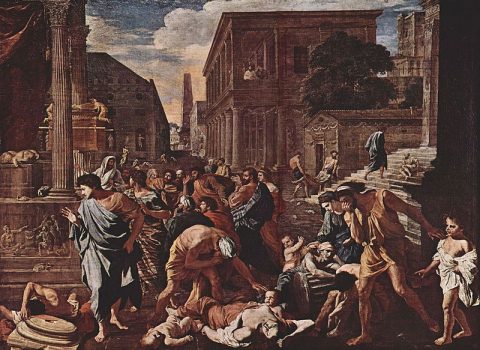Enrico Piergiacomi

Visiting Researcher at FBK-ISR, Enrico Piergiacomi is a scholar of History of Ancient Philosophy at the University of Trento, who is specialized in Presocratic thought and Hellenistic philosophy. His main research field consists in the study of ancient philosophy and theology/religion, with a special interest on its contemporary ethical implications. Currently, he works on a postdoctoral research project on the reception of the theological verses of Lucretius’ De rerum natura in the work of the Christian philosopher Pierre Gassendi (Amicus Lucretius. Gassendi e il “De rerum natura”).
He has published many essays in recognized scientific journals and three volumes, including the book Storia delle antiche teologie atomiste. Alongside ancient philosophy, he also works on aesthetics and history of theatre, in particular on the dissemination project Teatrosofia.
During his affiliation with the Center for Religious Sciences (FBK-IRS), Piergiacomi will continue his work on the project on Gassendi. Its main objective consists in the reconstruction of how Gassendi recovered Lucretius’s theology with an intention of religious innovation: the foundation of a “Christian hedonism”. The expression suggests that Gassendi wanted to establish a theological/moral perspective inspired by the principle that God created human beings in order to let them experience the pleasure identified by Epicurus (= the removal of physical / mental pain), which in turn brings to the birth of a political community whose members live according to the ideals of friendship and virtue. It is a line of research that integrates well with the aims of the Center and its Position Paper, which places the theme Innovation in Religion in its triangular model and invites the researcher to understand how religious discourse operates innovative transformations on the social / cultural level.
Author's articles
-
 March 10, 2020Of plague and passionTogether with Enrico Piergiacomi, we reconstruct a history of the relationship between emotion and reaction to epidemics / pandemics
March 10, 2020Of plague and passionTogether with Enrico Piergiacomi, we reconstruct a history of the relationship between emotion and reaction to epidemics / pandemics
Related tags
- Loading tags...
- #emotions
- #plague
- #resilience
- #coronavirus
- #Covid-19
- #passion
- #history
- #pandemia
- #epidemics
Browse by months
- Loading months...
- March 2020